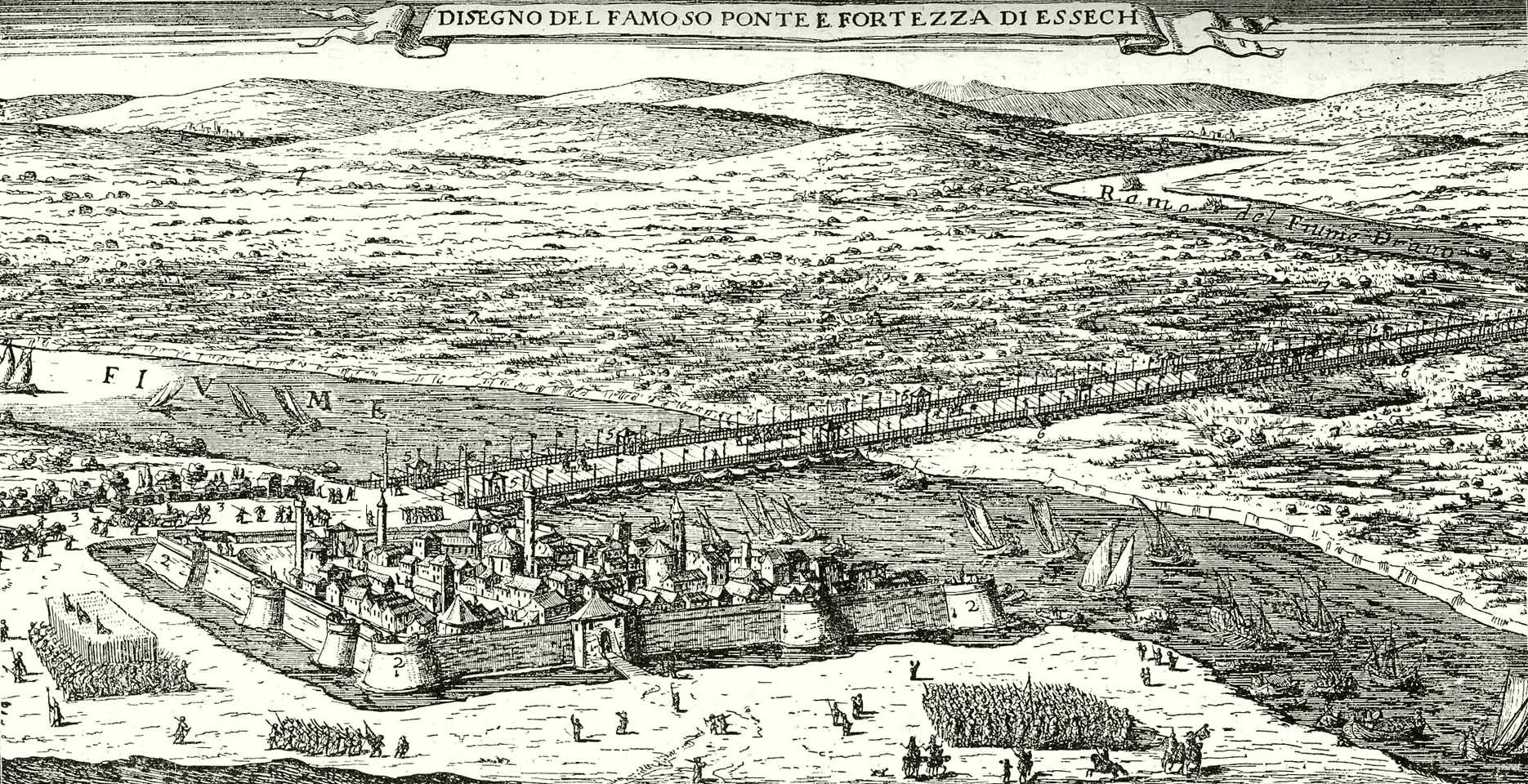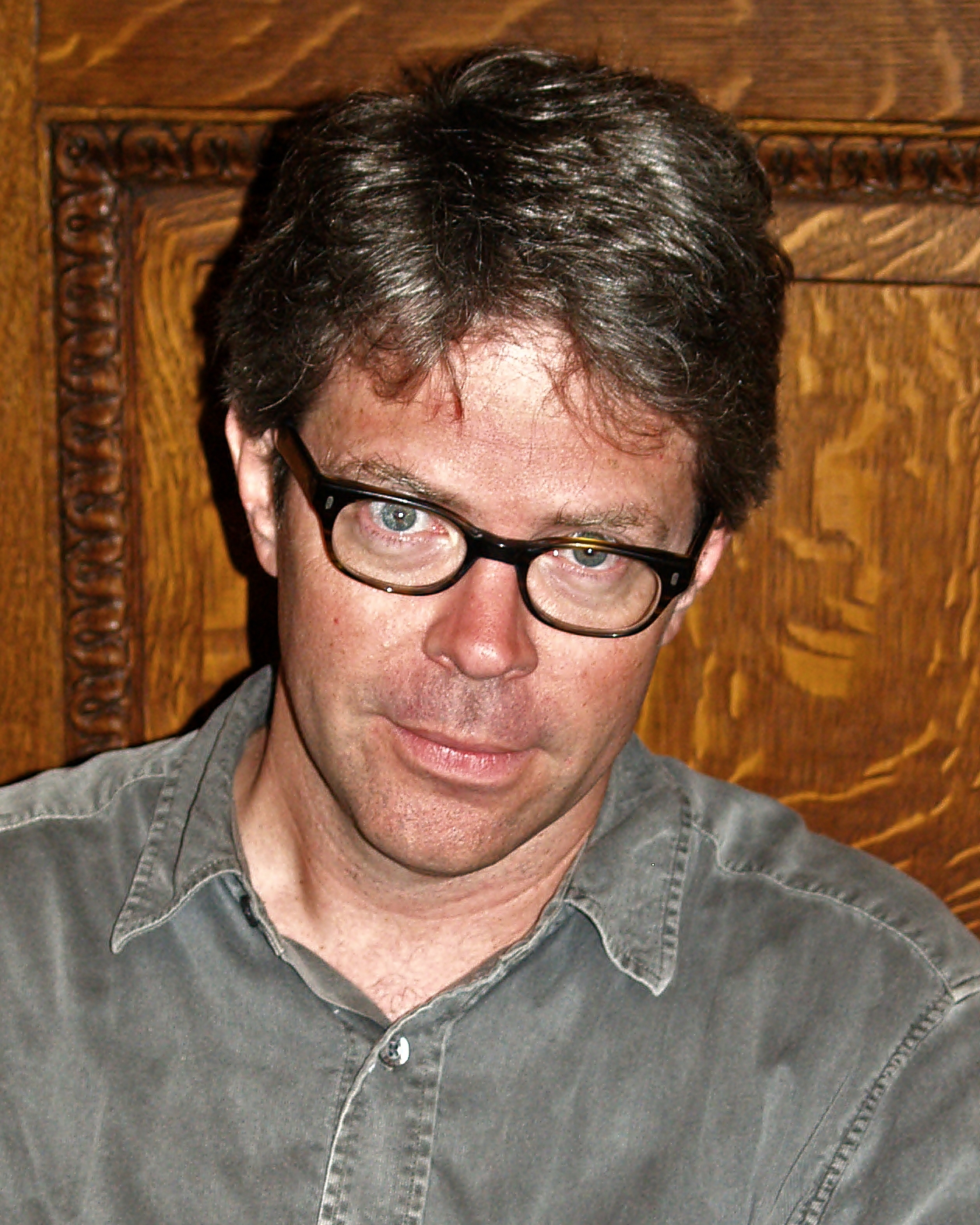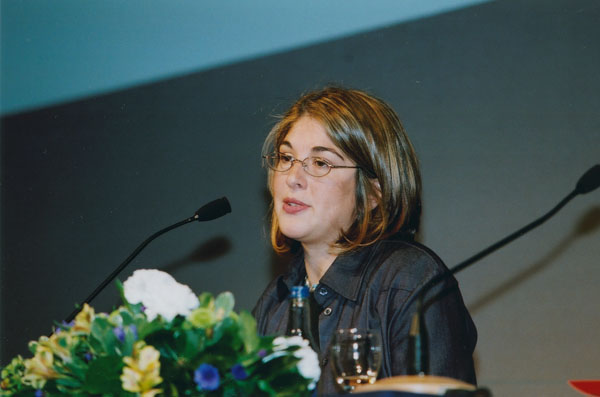|
Luka Bekavac
Luka Bekavac (born September 25, 1976) is a Croatian writer, university professor and translator. He was born in the city of Osijek. His novels ''Drenje'' (2011) and ''Viljevo'' (2013) have received critical acclaim. ''Viljevo'' won the Janko Polić Kamov Award in 2014, and the EU Prize for Literature in 2015. As a translator, Bekavac has translated works by Martin Amis, Jonathan Franzen, Alberto Toscano, Naomi Klein and Aleksandar Hemon among others. Bekavac teaches literature at Zagreb University The University of Zagreb ( hr, Sveučilište u Zagrebu, ; la, Universitas Studiorum Zagrabiensis) is the largest Croatian university and the oldest continuously operating university in the area covering Central Europe south of Vienna and all of ..., and contributes regularly to media outlets and scholarly publications. Bekavac is member of the electro acoustic music project Jeanne Frémaux with Toma Bačić. References Croatian writers 1976 births Living people A ... [...More Info...] [...Related Items...] OR: [Wikipedia] [Google] [Baidu] |
Croats
The Croats (; hr, Hrvati ) are a South Slavic ethnic group who share a common Croatian ancestry, culture, history and language. They are also a recognized minority in a number of neighboring countries, namely Austria, the Czech Republic, Germany, Hungary, Italy, Montenegro, Romania, Serbia, Slovakia and Slovenia. Due to political, social and economic reasons, many Croats migrated to North and South America as well as New Zealand and later Australia, establishing a diaspora in the aftermath of World War II, with grassroots assistance from earlier communities and the Roman Catholic Church. In Croatia (the nation state), 3.9 million people identify themselves as Croats, and constitute about 90.4% of the population. Another 553,000 live in Bosnia and Herzegovina, where they are one of the three constituent ethnic groups, predominantly living in Western Herzegovina, Central Bosnia and Bosnian Posavina. The minority in Serbia number about 70,000, mostly in Vojvodina. The ... [...More Info...] [...Related Items...] OR: [Wikipedia] [Google] [Baidu] |
Osijek
Osijek () is the fourth-largest city in Croatia, with a population of 96,848 in 2021. It is the largest city and the economic and cultural centre of the eastern Croatian region of Slavonia, as well as the administrative centre of Osijek-Baranja County. Osijek is located on the right bank of the Drava River, upstream of its confluence with the Danube, at an elevation of . Name The name was given to the city due to its position on elevated ground, which prevented the city being flooded by the local swamp waters. Its name "Osijek" derives from the Croatian word ''oseka'', which means "ebb tide". Due to its history within the Habsburg monarchy and briefly in the Ottoman Empire, as well as the presence of German, Hungarian, and Serbian minorities throughout its history, Osijek has (or had) its names in other languages, Осек/Osek or Осијек/Osijek in Serbian, Hungarian: ''Eszék'', german: link=no, Esseg or Essegg, tr, Ösek, la, Essek. It is also spelled ''Esgek''. Its ... [...More Info...] [...Related Items...] OR: [Wikipedia] [Google] [Baidu] |
Janko Polić Kamov Award
Janko is a name that derives from a diminutive form of the name ''Jan'' (Slavic languages), '' Janez'' (Slovenian), '' János'' (Hungarian), and ''Yakov''/''Jacob'' (Ashkenazi Jewish). It also derives from the vernacular form of Latin ''Johannes''. Notable people with the name include: Given name *Janko Benša (born 1977), Serbian distance runner * Janko Bobetko (1919–2003), Croatian general *Janko Brašić (1906–1994), Serbian naïve painter *Janko Drašković (1770–1856), Croatian politician *Janko Dreyer (born 1994), South African cricketer *Janko Gagić (died 1804), Serbian hajduk leader *Janko Gojković (born 1973), Bosnian swimmer *Janko Gredelj (1916–1941), Yugoslav communist *Janko Halkozović (fl. 1757), Serbian painter *Janko Janša (born 1900), Slovenian cross-country skier *Janko Jesenský (1874–1945), Slovak lower nobleman and member of the Slovak national movement *Janko Kamauf (1801–1874), city magistrate of Gradec and mayor of Zagreb, Croatia *Janko Ke ... [...More Info...] [...Related Items...] OR: [Wikipedia] [Google] [Baidu] |
EU Prize For Literature
The European Union Prize for Literature (EUPL), established in 2009, is a European Union literary award. Its aim is to recognise outstanding new literary talents from all over Europe, to promote the circulation and translation of literature amongst European countries, and to highlight the continent's creativity and diversity. About the Award The EUPL is funded by the "Creative Europe" programme, the European Commission framework programme for support to the culture and audiovisual sectors. On the daily, the Prize is run by a Consortium of associations composed of the European Writers' Council, the Federation of European Publishers, and the European and International Booksellers Federation, with support from the European Commission. The EUPL Consortium is responsible for the setting up of national juries and the practical organisation of the EUPL award ceremony. They support the laureates in their promotion across Europe and beyond, online and at bookshops and book fairs' event ... [...More Info...] [...Related Items...] OR: [Wikipedia] [Google] [Baidu] |
Martin Amis
Martin Louis Amis (born 25 August 1949) is a British novelist, essayist, memoirist, and screenwriter. He is best known for his novels ''Money'' (1984) and ''London Fields'' (1989). He received the James Tait Black Memorial Prize for his memoir ''Experience'' and has been listed for the Booker Prize twice (shortlisted in 1991 for ''Time's Arrow'' and longlisted in 2003 for '' Yellow Dog''). Amis served as the Professor of Creative Writing at the Centre for New Writing at the University of Manchester until 2011. In 2008, ''The Times'' named him one of the fifty greatest British writers since 1945. Amis's work centres on the excesses of " late-capitalist" Western society, whose perceived absurdity he often satirises through grotesque caricature; he has been portrayed as a master of what ''The New York Times'' called "the new unpleasantness".Stout, Mira"Martin Amis: Down London's mean streets" ''The New York Times'', 4 February 1990. Inspired by Saul Bellow and Vladimir Nabokov, as we ... [...More Info...] [...Related Items...] OR: [Wikipedia] [Google] [Baidu] |
Jonathan Franzen
Jonathan Earl Franzen (born August 17, 1959) is an American novelist and essayist. His 2001 novel ''The Corrections'', a sprawling, satirical family drama, drew widespread critical acclaim, earned Franzen a National Book Award, was a Pulitzer Prize for Fiction finalist, earned a James Tait Black Memorial Prize, and was shortlisted for the International Dublin Literary Award. His novel ''Freedom'' (2010) garnered similar praise and led to an appearance on the cover of ''Time'' magazine alongside the headline " Great American Novelist". Franzen's latest novel ''Crossroads'' was published in 2021, and is the first in a projected trilogy. Franzen has contributed to ''The New Yorker'' magazine since 1994. His 1996 '' Harper's'' essay " Perchance to Dream" bemoaned the state of contemporary literature. Oprah Winfrey's book club selection in 2001 of ''The Corrections'' led to a much publicized feud with the talk show host. In recent years, Franzen has become recognized for his opinion ... [...More Info...] [...Related Items...] OR: [Wikipedia] [Google] [Baidu] |
Alberto Toscano
Alberto Toscano (born 1 January 1977) is an Italian cultural critic, social theorist, philosopher, and translator. He has translated the work of Alain Badiou, including Badiou's ''The Century'' and ''Logics of Worlds''. He served as both editor and translator of Badiou's ''Theoretical Writings'' and ''On Beckett''. Work Toscano's own work has been described both as an investigation of the persistence of the idea of communism in contemporary thought and a genealogical inquiry into the concept of fanaticism. He is the author of ''The Theatre of Production'' (2006), and his book ''Fanaticism: The Uses of an Idea'' was published in 2010. Toscano has published on contemporary philosophy, politics and social theory. In an article on the Tarnac 9 case, written for ''The Guardian'' in December 2009, Toscano argues that society is losing its ability to distinguish between vandalism and terrorism. A reader in sociology at Goldsmiths, University of London, Toscano is a member of the edi ... [...More Info...] [...Related Items...] OR: [Wikipedia] [Google] [Baidu] |
Naomi Klein
Naomi A. Klein (born May 8, 1970) is a Canadian author, social activist, and filmmaker known for her political analyses, support of ecofeminism, organized labour, left-wing politics and criticism of corporate globalization, fascism, ecofascism and capitalism. As of 2021 she is Associate Professor, and Professor of Climate Justice at the University of British Columbia, co-directing a Centre for Climate Justice. Klein first became known internationally for her alter-globalization book ''No Logo'' (1999). '' The Take'' (2004), a documentary film about Argentina's occupied factories, written by her and directed by her husband Avi Lewis, further increased her profile, while ''The Shock Doctrine'' (2007), a critical analysis of the history of neoliberal economics, solidified her standing as a prominent activist on the international stage. ''The Shock Doctrine'' was adapted into a six-minute companion film by Alfonso and Jonás Cuarón, as well as a feature-length documentary by Mic ... [...More Info...] [...Related Items...] OR: [Wikipedia] [Google] [Baidu] |
Aleksandar Hemon
Aleksandar Hemon ( sr-Cyrl, Александар Xeмoн; born September 9, 1964) is a Bosnian-American author, essayist, critic, television writer, and screenwriter. He is best known for the novels '' Nowhere Man'' (2002) and '' The Lazarus Project'' (2008), and his scriptwriting as a co-writer of ''The Matrix Resurrections'' (2021). He frequently publishes in ''The New Yorker'' and has also written for ''Esquire'', ''The Paris Review'', the Op-Ed page of ''The New York Times'', and the Sarajevo magazine '' BH Dani''. Early life Hemon was born in Sarajevo, Bosnia and Herzegovina, then Yugoslavia, to a father of partial Ukrainian descent and a Bosnian Serb mother. Hemon's great-grandfather, Teodor Hemon, came to Bosnia from Western Ukraine prior to World War I, when both countries were a part of the Austro-Hungarian Empire. Biography Hemon graduated from the University of Sarajevo and was a published writer in former Yugoslavia by the time he was 26. Since 1992 he has lived ... [...More Info...] [...Related Items...] OR: [Wikipedia] [Google] [Baidu] |
Zagreb University
The University of Zagreb ( hr, Sveučilište u Zagrebu, ; la, Universitas Studiorum Zagrabiensis) is the largest Croatian university and the oldest continuously operating university in the area covering Central Europe south of Vienna and all of Southeastern Europe. The University of Zagreb and the University North are the only public universities operating in Northern and Central Croatia. The history of the University began on September 23, 1669, when the Holy Roman Emperor Leopold I issued a decree granting the establishment of the ''Jesuit Academy of the Royal Free City of Zagreb''. The decree was accepted at the Council of the Croatian Kingdom on November 3, 1671. The Academy was run by the Jesuits for more than a century until the order was dissolved by Pope Clement XIV in 1773. In 1776, Empress Maria Theresa issued a decree founding the ''Royal Academy of Science'' which succeeded the previous Jesuit Academy. Bishop Josip Juraj Strossmayer proposed the founding of a Univ ... [...More Info...] [...Related Items...] OR: [Wikipedia] [Google] [Baidu] |
Toma Bačić
Toma or TOMA may refer to: Places * Toma, Burkina Faso, a town in Nayala province * Toma Department, a department in Nayala province *Toma, Banwa, Burkina Faso, a town * Tōma, Hokkaidō, Japan, a town **Tōma Station, its railway station *Toma, a town in East New Britain, Papua New Guinea People *Toma (name), list of people with this name *Loma people or Toma, an ethnic group from border region between Guinea and Liberia **Loma language Music and television * ''Toma'' (TV series), an American series * "Toma" (song), by rapper Pitbull *"Toma" (song), by artist Puscifer Other uses * La Toma, a 1598 assertion of Spanish possession of land north of Rio Grande * Siege of Toma, a military action in 1914 in German New Guinea * Texas Open Meetings Act * Theatre Orchestra Musicians Association (TOMA), part of the Media, Entertainment and Arts Alliance, Australia * Tōma, Kendo term for "long distance" * Toma cheese, Italian cheese * Top of mind awareness, a marketing term * TOMA (vehicl ... [...More Info...] [...Related Items...] OR: [Wikipedia] [Google] [Baidu] |
Croatian Writers
Croatian may refer to: *Croatia *Croatian language *Croatian people *Croatians (demonym) See also * * * Croatan (other) * Croatia (other) * Croatoan (other) * Hrvatski (other) * Hrvatsko (other) * Serbo-Croatian (other) Serbo-Croatian or Croato-Serbian, rarely Serbo-Croat or Croato-Serb, refers to a South Slavic language that is the primary language of Serbia, Croatia, Bosnia and Herzegovina, and Montenegro. Serbo-Croatian, Serbo-Croat, Croato-Serbian, Croato-Serb ... {{disambiguation Language and nationality disambiguation pages ... [...More Info...] [...Related Items...] OR: [Wikipedia] [Google] [Baidu] |
.png)



.jpg)